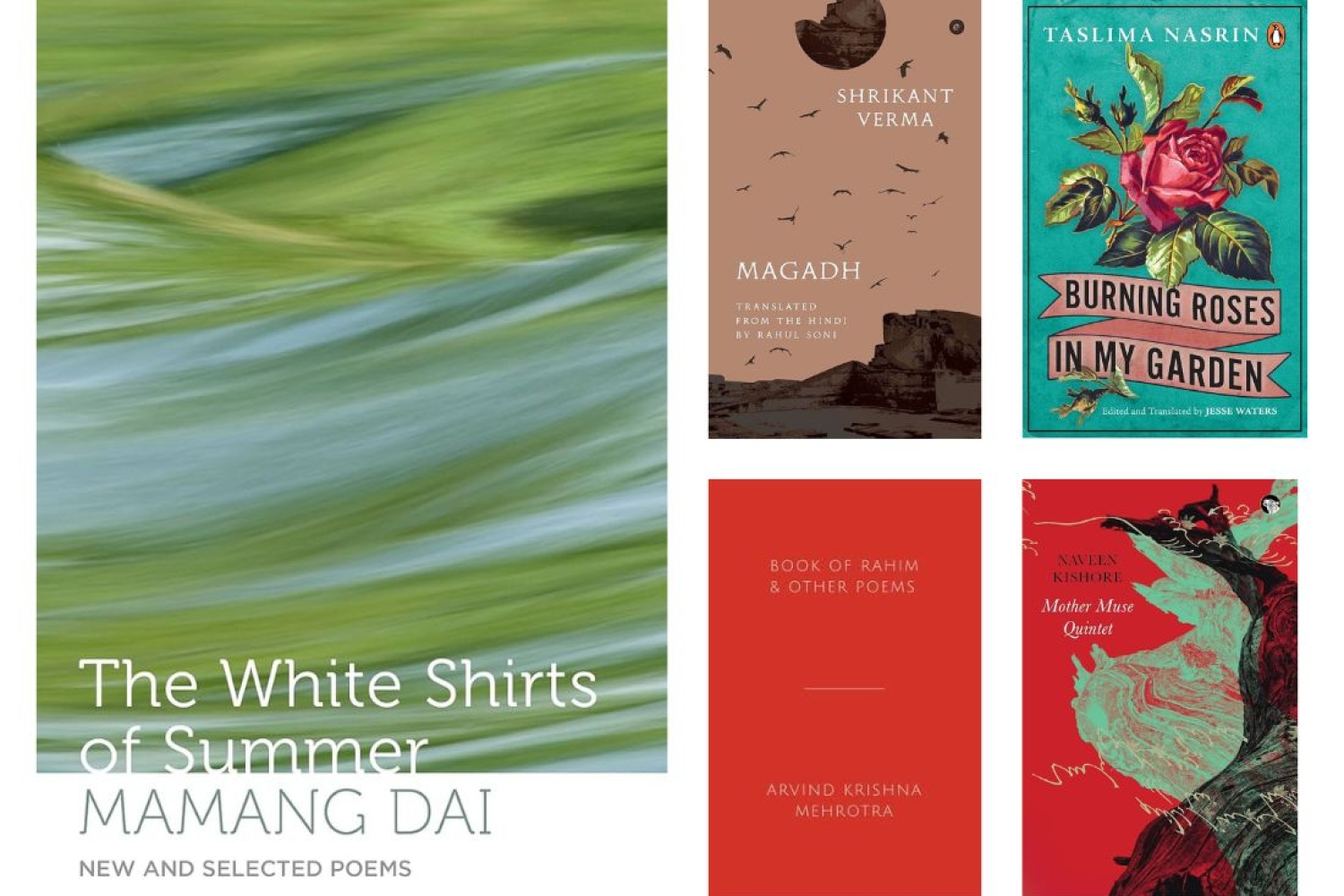

In the delicate dance between words and emotions, poetry illuminates the corridors of the human experience. In 2023, we witnessed the emergence of profound voices and stirring narratives within the realm of Indian poetry. Platform navigates through the landscape of poetry, exploring the collections that left an indelible mark on the poetic tapestry of 2023.
White Shirts of Summer: New and Selected Poems by Mamang Dai
Dai's poetry transports readers into a world of rivers, forests, and mountains, painting a lyrical portrait that mirrors the landscapes of her home state. Nature unfolds mysteriously, enriched with myth and steeped in sacred memory. While the verses exude a magical quality, there's an underlying current hinting at a more ominous reality—where this paradisiacal backdrop coexists with the stark presence of "guns and gulls" and the rhythmic footfalls of soldiers. Dai's seemingly straightforward verses reveal a subtle complexity, gently guiding readers along a riverine current that, with unexpected turns, unveils moments of heart-stopping revelation.
Magadh by Shrikant Verma; Translated by Rahul Soni
First published in 1984, Magadh, the Sahitya Akademi-winning masterpiece by writer Shrikant Verma, stands as a significant work in 20th-century Indian poetry. Through a chorus of narrators, including commoners, statesmen, and nameless wanderers, the poet intricately weaves together the histories of ancient cities and kingdoms on the Indian subcontinent. The verses vividly capture their journey from grandeur to decline and eventual downfall. Verma's poetry, characterized by its stark urgency, arch narrative, and rich allusions, lays bare the tales of corruption, guilt, ignorance, and arrogance that permeate these historical narratives.
Burning Roses in My Garden by Taslima Nasrin; Translated by Jesse Waters
Taslima Nasrin presents her inaugural, all-encompassing collection of poetry translated from Bangla into English. Delving into the essence of the 'other' in exile, the poems articulate the struggle to justify one's place in a frightening world. They both celebrate the solace and critique the cruelty found in relationships. Within the verses lie themes of loneliness, sorrow, and occasionally, exaltation. Predominantly relying on free verse, the poems employ a diction that is both tender and fierce, unraveling the personal experiences of one woman while encapsulating the existence of countless generations of women across time and around the globe.
Book Of Rahim & Other Poems by Arvind Krishna Mehrotra
In Arvind Krishna Mehrotra's latest poetry collection, he presents extraordinary reflections on the mundane, alongside a frequent reimagining of history that transforms it into something as familiar as a relative or a piece of furniture, yet simultaneously peculiar and unrepeatable. This exploration includes Mehrotra embodying the voice and era of an aging Ghalib, revisiting Abdul-Rahim Khan-i-Khanan, an influential figure in the Mughal nobility of the 16th and 17th centuries, and uncovering objects and letters from his family home in Lahore. The outcome is a worn immediacy that proves challenging for weighty historical novels to replicate.
Mother Muse Quintet by Naveen Kishore
Mother Muse Quintet is a commemorative work of the imagination, where memory, akin to a translucent veil shaped by an ever-present fog that both lifts and settles, weaves through the narratives of multiple generations. These generations emerge as storytellers, companions, enigmatic versions of oneself, and, significantly, as Mother Muse—fulfilling roles of both birth mother and mother tongue.
Words Paridhi Badgotri
Date 19.11.2023